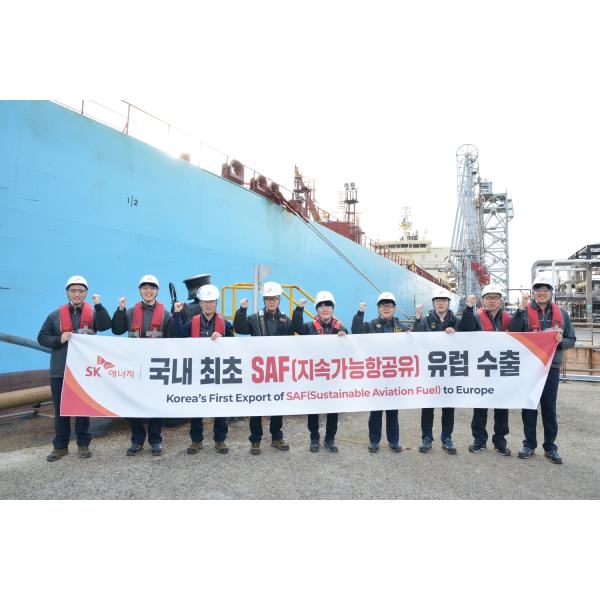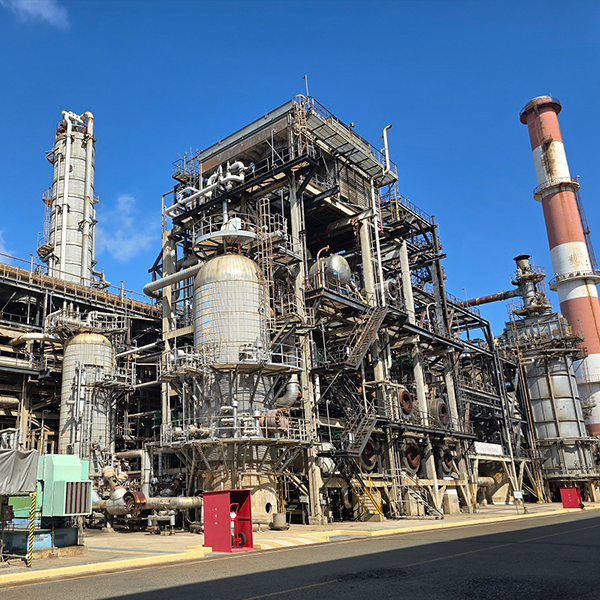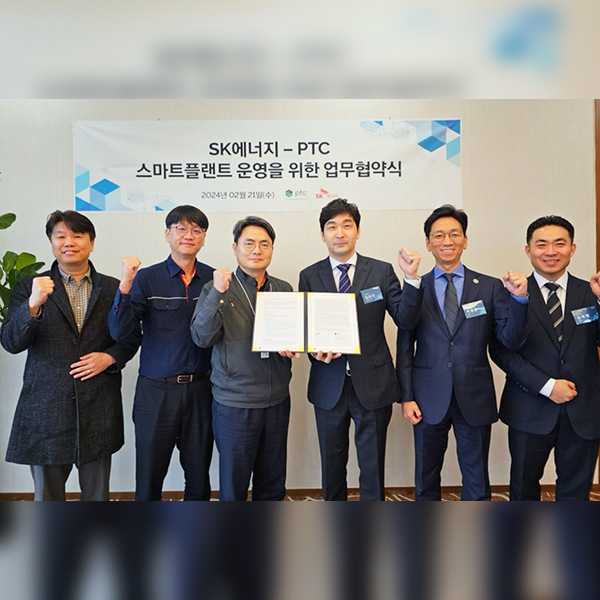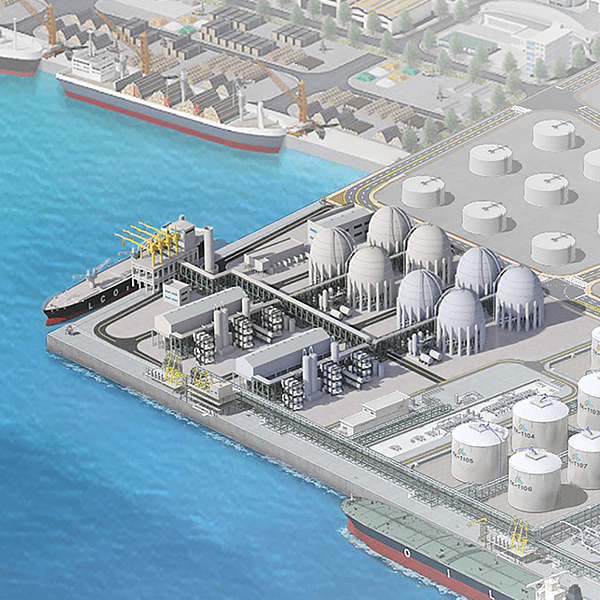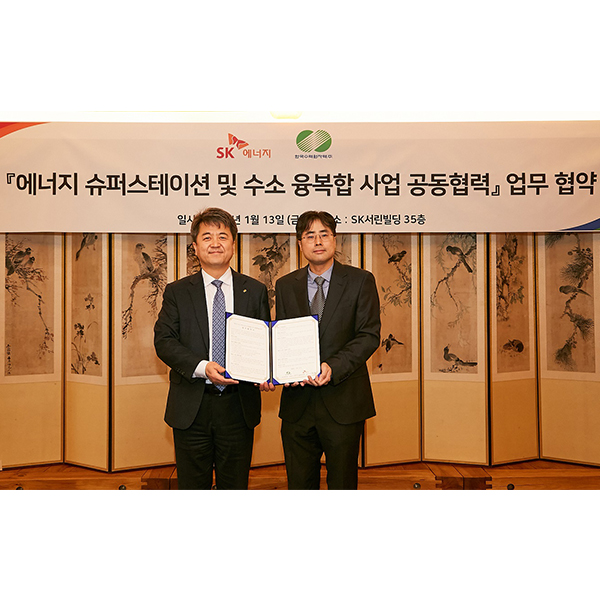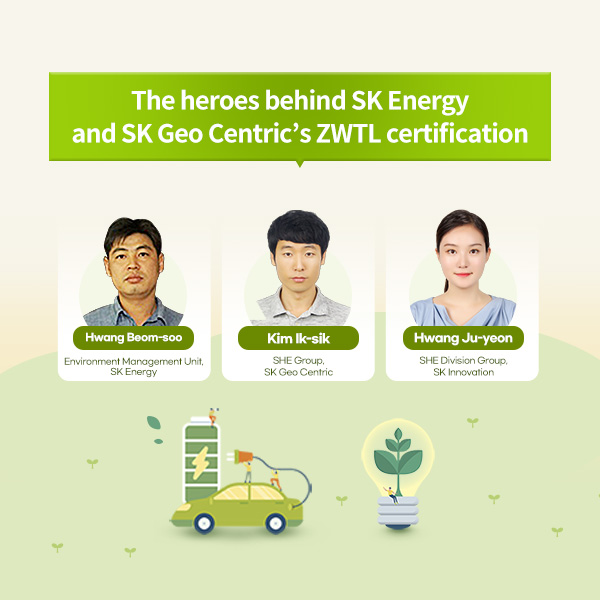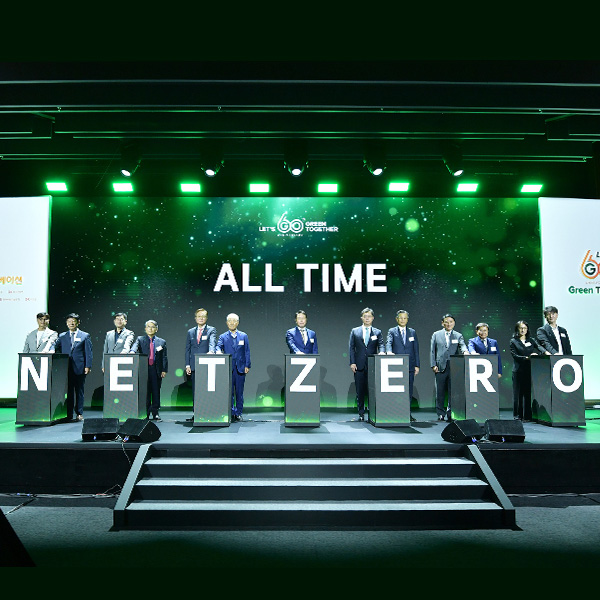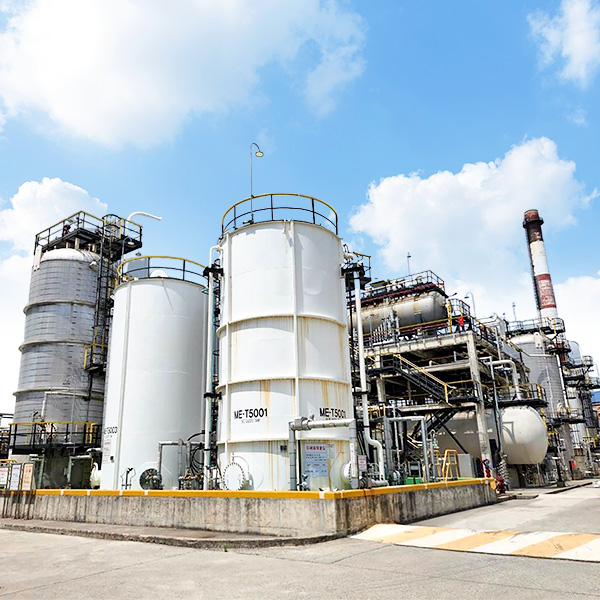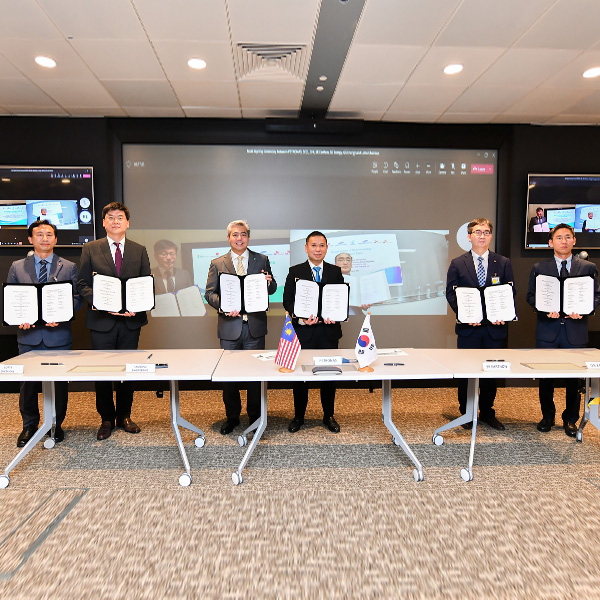 SK Energy
SK Energy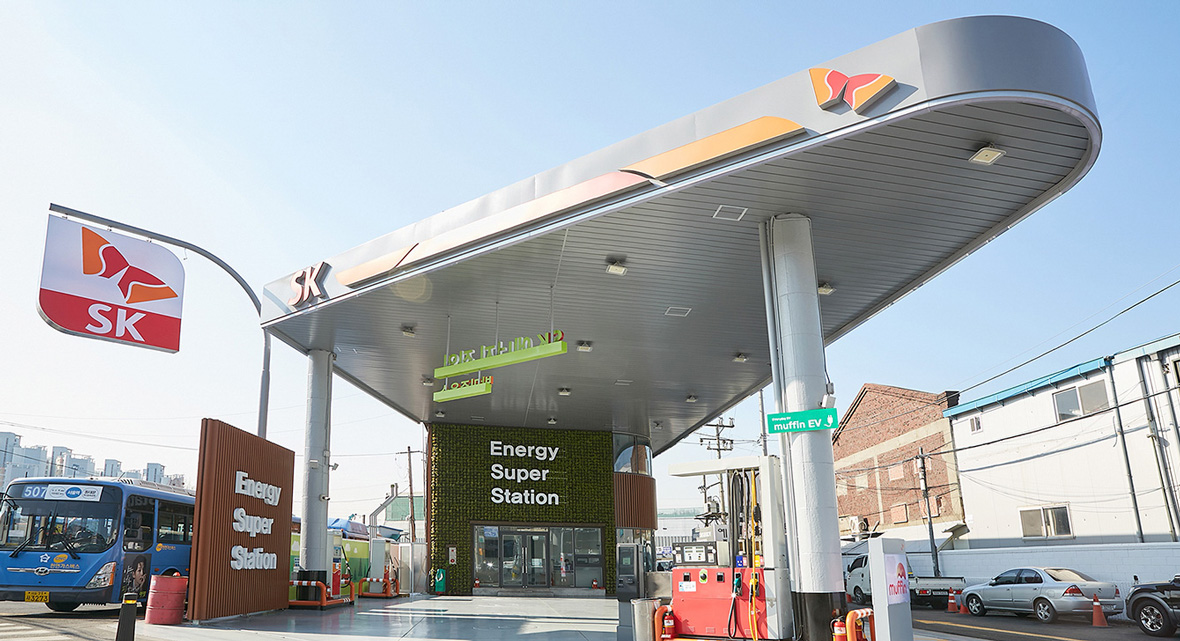
▲ SK Energy’s first Energy Super Station is located at SK Bakmi Gas Station in Geumcheon-gu, Seoul
Do you know that there is a place where you can refuel and charge both the internal combustion engine (ICE) vehicles and electric vehicles (EVs) simultaneously? SK Energy installed the first-ever Energy Super Station in its Bakmi Gas Station, transforming the station into an eco-friendly energy hub and solving the issues surrounding the lack of charging infrastructure for EVs. Moreover, the company sets out on its mission to make carbon neutrality come true.
Last February, SK Energy partnered with the Ministry of Trade, Industry, and Energy (MOTIE) to push ahead with the Distributed Energy Invigoration Strategy Project. As a brainchild of the project, the company installed Korea’s first Energy Super Station at SK Bakmi Gas Station. The Energy Super Station is SK Energy’s innovative gas-station-based business model that utilizes electricity generated from distributed energy sources, such as photovoltaic (PV) and fuel cell systems to charge EVs.
*SK Energy was granted a special case for demonstration through the regulatory sandbox for the “fuel cells installed in a gas station” last May 2021. As a result, the construction took place beginning last November. The Energy Super Station was completed at SK Bakmi Gas Station in Geumcheon-gu, Seoul, in February 2022.

In particular, this project is highly significant because it was made possible by the close cooperation between the private and government sectors. SK Energy cooperated with the relevant government ministry and local government for the project. Specifically, the MOTIE helped manage the regulatory sandbox and supported the relevant policies, while the National Fire Agency assisted in amending the relevant laws regarding maintenance, and safety management. The Seoul Metropolitan Government supported licensing issues for transforming the existing gas station to be the Energy Super Station.
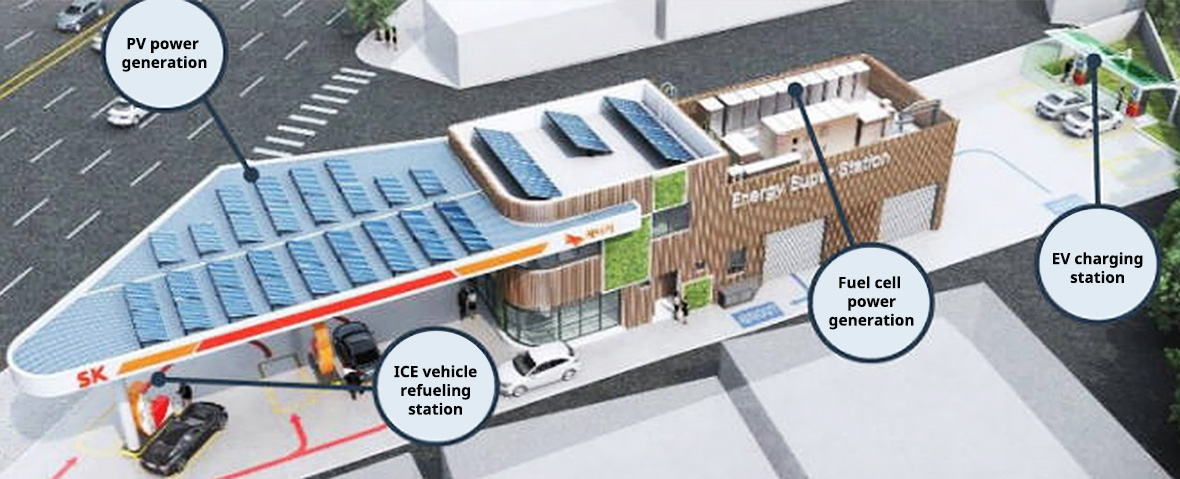
▲ Main facilities in SK Bakmi Station in Geumcheon-gu, Seoul
This Energy Super Station installed in SK Bakmi Gas Station independently produces eco-friendly electricity through its PV facility (20.6kW) and fuel cell stacks (300kW).
The fuel cell stacks generate electricity by creating a chemical reaction between the hydrogen and oxygen in the air. Since the reactive substances, hydrogen and oxygen, are made available from the external source, there is no need to charge them like batteries. Moreover, since fuel cell stacks generate energy through an electrochemical reaction that does not have any combustion reaction of the fossil fuel, it produces less toxic pollutants than the existing internal combustion engines. Not only that, it can reduce the emission of carbon dioxide. Therefore they are environmentally friendly.
SK Energy installed solar panels on the roof of the gas station to produce electricity in an eco-friendly way. As the PV facility was installed in consideration of the already existing gas station and its land, SK Energy was able to ensure efficiency in using the limited space. The first-ever Energy Super Station has managed to produce 2500Mwh of electricity stably even though it is situated in a compact space in Seoul with a huge floating population. Such an amount equates to charging an EV about 43,000 times.
At the moment, SK Energy is selling the energy generated by its facility to Korea Electric Power Corporation (KEPCO), but once the relevant laws are amended, it aims to use the generated electricity to power two super-fast (350kW) and fast (100kW) EV charging stations. In the future, EV drivers will be able to charge their cars with “eco-friendly electricity” generated by eco-friendly power generation facilities.
※ Under the Electric Utility Act, power generation businesses are currently disallowed from selling electricity

▲ Fuel cell stacks installed at the Energy Super Station in SK Bakmi Gas Station
Several hurdles were present at the initial phase of the Energy Super Station project because of the existing law that banned the installation of the fuel cell facilities, but after several consultations with the MOTIE and the National Fire Agency, SK Energy received the approval for the special case of regulatory sandbox demonstration that enabled the company to install fuel cell stacks in the station. After going through the risk evaluation and ensuring the safety of the facility, SK Energy successfully installed the Energy Super Station in the gas station. Moreover, once the Energy Super Station operates in a stable manner down the road, it will become a milestone as “the first step toward building the eco-friendly energy hub,” working as a benchmark for amending relevant laws in the future.

▲ Fuel cell stacks (left) and PV facility (right) are installed at the Energy Super Station in SK Bakmi Gas Station
Once this eco-friendly station spreads across the gas stations in the country, the vitalization of the power generation by the distributed energy will lessen the loss of power transmission and distribution and increase the energy self-sufficiency rate of the cities. Moreover, the station offers an additional advantage that it will allow the country to effectively respond to a surge in demand for electricity following the increase in EV sales and the 4th Industrial Revolution. There is no need to acquire additional lands to produce electricity as charging infrastructure for eco-friendly vehicles can be utilized efficiently for meeting the demand.

▲ The EV charging station of the first Energy Super Station that opened in the SK Bakmi Gas Station
Gas stations are the most appropriate place to install charging stations for electric and hydrogen vehicles because they are located at the center of the city, where the demand for energy is highly concentrated. Not only that, the Energy Super Station, which has evolved into a multi-complex station that generates renewable energy on top of charging and refueling vehicles, is an energy transformation model that will become a pioneer in achieving carbon neutrality.
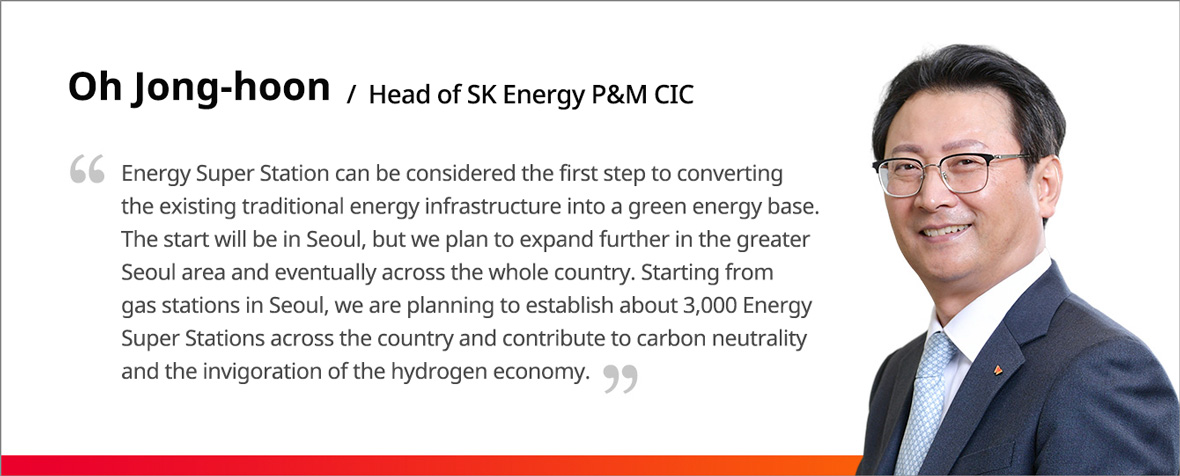










 Youtube
Youtube Facebook
Facebook Instagram
Instagram Linkedin
Linkedin








